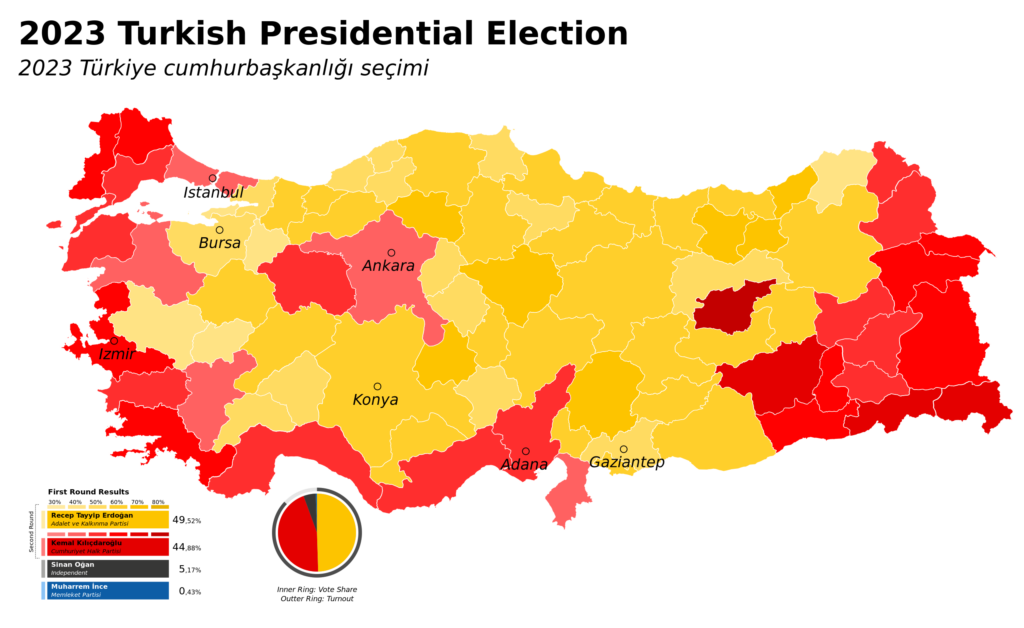
The Turkish presidential elections of 2023 are poised to have a profound impact on the political landscape of the country. With a series of significant developments leading up to this event. It is crucial to examine the key players, their ideologies, and the issues at stake.
The ruling Justice and Development Party (AKP) and its leader, President Recep Tayyip Erdogan, face formidable opposition from various parties. As the leading opponent, Kemal Kilicdaroglu’s Republican People’s Party (CHP) emerges. Alongside them were the Nationalist Movement Party (MHP), and the Good Party (IYI). However, the pro-Kurdish Peoples’ Democratic Party (HDP) presents diverse ideologies, ranging from conservative to secular and nationalist to progressive.
The upcoming elections take place against a backdrop of significant issues that have shaped Turkey in recent years. Economic concerns, constitutional reforms, regional conflicts, and issues of freedom of speech and the press loom large. Voters will scrutinize the candidates’ stances on these issues, seeking reassurance for economic stability, democratic principles, and the country’s role in international affairs.
Recep Tayyip Erdogan’s long-standing political dominance is a defining factor in the elections. For almost two decades, he has been a prominent figure in Turkish politics, serving as both prime minister and president. While his leadership has seen various reforms and transformations. However, it has also attracted criticism for what some perceive as an increasing consolidation of power. The 2023 elections will test Erdogan’s popularity and the public’s willingness to endorse his continued dominance.
Opposition parties are challenging the AKP’s grip on power. Who have made it clear they are unhappy with Erdogan’s leadership. The CHP, under the leadership of Kemal Kilicdaroglu, positions itself as a potent alternative by emphasizing democracy, secularism, and inclusive policies. Other opposition parties, such as the IYI Party and HDP, also strive to gain ground and present themselves as capable of steering Turkey toward a more balanced future.
In conclusion, the Turkish presidential elections of 2023 bear significant implications for the country’s future trajectory. As voters exercise their democratic rights, critical issues, including the economy, democracy, and Turkey’s standing on the global stage, will weigh heavily on their decisions. The outcome of these elections will shape the political landscape. However, it also determines the course Turkey takes in the years to come.
